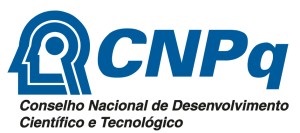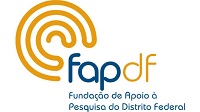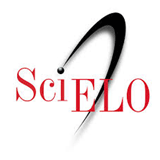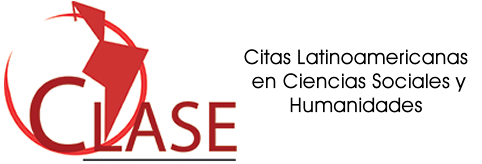Do estruturalismo ao culturalismo: a filosofia das formas simbólicas de Ernest Cassirer
DOI:
https://doi.org/10.1590/s0102-6992-201833030001Palabras clave:
Cassirer, Cultura, Neokantismo, Práxis, Pensamento relacionalResumen
Ao investigar as origens neokantianas do estruturalismo e do culturalismo, este artigo analisa o desenvolvimento do pensamento de Cassirer, seguindo sua trajetória intelectual do conhecimento à cultura e da cultura à práxis. Este artigo está dividido em duas partes. Na primeira, o autor apresenta uma análise da concepção relacional do conhecimento de Cassirer. Na segunda, a crítica do conhecimento é suplantada por uma crítica da cultura. O autor analisa a filosofia antropológica das formas simbólicas e a compara criticamente com a teoria vitalista da cultura de Simmel. O artigo termina com a reivindicação por uma sociologia prática inspirada pelo retorno de Cassirer à filosofia prática de Kant.
Descargas
Citas
ARATO, Andrew. The neo-idealist defense of subjectivity. Telos, v. 21, p. 108-161, 1974. [ Links ]
BACHELARD, Gaston. Le nouvel esprit scientifique. Paris: Presses Universitaires de France, 1991. [ Links ]
_____. Philosophie du non. Paris: Presses Universitaires de France, 1988. [ Links ]
BOURDIEU, Pierre. Raisons pratiques. Sur la théorie de l’action. Paris: Les Éditions du Seuil, 1994. [ Links ]
_____. Sur le pouvoir symbolique. Annales E. S. C., v. 23, n. 3, p. 405-411, 1978. [ Links ]
BOURDIEU, Pierre; CHAMBOREDON, Jean-Claude; PASSERON, Jean-Claude. Le métier de sociologue. Paris: Mouton, 1973. [ Links ]
CASSIRER, Ernst. Zur Metaphysik der symbolischen Formen. Hamburg: Felix Meiner Verlag, 1995. [ Links ]
_____. Substanzbegriff und Funktionsbegriff. Untersuchungen über die Grundfragen der Erkenntniskritik. Darmstadt: Wissenschaftliche Buchhandlung, 1910/1994. [ Links ]
_____. Symbol, Technik, Sprache. Aufsätze aus den Jahren 1927-1933. Hamburg: Felix Meiner Verlag, 1985. [ Links ]
_____. Symbol, myth, and culture. Essays and lectures of Ernst Cassirer 1935-1945. New Haven (CT): Yale University Press, 1979. [ Links ]
_____. The myth of the State. New Haven (CT): Yale University Press, 1946/1975. [ Links ]
_____. Davoser Disputation zwischen Ernst Cassirer und Martin Heidegger. In: VON HERRMANN, Friedrich-Wilhelm. Martin Heidegger: Kant und das Problem der Metaphysik. Frankfurt am Main: Klostermann, 1929/1973. [ Links ]
_____. An essay on man. New Haven (CT): Yale University Press, 1944/1972. [ Links ]
_____. Das Erkenntnisproblem in der Philosophie und Wissenschaft der neueren Zeit. Darmstadt: Wissenchaftliche Buchgesellschaft, 1906-1907/1971. [ Links ]
_____. Philosophie der symbolischen Formen. Die Sprache; II: Das Mythische Denken; III: Phänomenologie der Erkenntnis. Darmstadt: Wissenschaftliche Buchgesellschaft, 1923-1929/1964. [ Links ]
_____. Zur Logik der Kulturwissenschaften. Fünf Studien. Darmstadt: Wissenschaftliche Buchgesellschaft, 1942/1961. [ Links ]
_____. Wesen und Wirkung des Symbolbegriffs. Darmstadt: Wissenschaftliche Buchgesellschaft, 1956. [ Links ]
_____. Spirit and life in contemporary philosophy: In: SCHILPP, Paul (Ed.). The philosophy of Ernst Cassirer. Evanston (IL): Northwestern University Press, 1949. [ Links ]
CAWS, Peter. Structuralism. A philosophy for the human sciences. Atlantic Heights (NJ): Humanities Press, 1990. [ Links ]
DUSSORT, H. L’école de Marbourg. Paris: Presses Universitaires de France, 1963. [ Links ]
FOUCAULT, M. Une histoire restée muette. In: FOUCAULT, M. Dits et écrits (1954-1969 1: 545-49). Paris: Gallimard, 1994. [ Links ]
FREITAG, M. Dialectique et société. 1: “Introduction à une théorie générale du symbolique”; 2: “Culture, pouvoir, contrôle. Les modes formels de reproduction de la société”. Montréal (CA): Éditions Saint-Martin, 1986. [ Links ]
GAUBERT, Joël La science politique d’Ernst Cassirer. Paris: Éditions Kimé, 1996. [ Links ]
GESSNER, Willfried. Geld als symbolische Form. Simmel, Cassirer und die Objektivität der Kultur. Simmel Newsletter, v. 6, n. 1, p. 1-30, 1996. [ Links ]
GIDDENS, Anthony. The constitution of society. outline of the theory of structuration. Cambridge (UK): Polity Press, 1984. [ Links ]
HABERMAS, Jürgen. Die befreiende Kraft der symbolische Formgebung. Ernst Cassirer’s humanistische Erbe und die Bibliothek Warburg. In: HABERMAS, Jürgen. Vom sinnlichen Eindruck zum symbolischen Ausdruck. Frankfurt am Main: Suhrkamp, 1997. [ Links ]
_____. Nachmetaphysisches Denken. Philosophische Aufsätze. Frankfurt am Main: Suhrkamp, 1988. [ Links ]
_____. Theorie des kommunikativen Handelns. I: “Handlungsrationalität und gesellschaftliche Rationalisierung”; II: “Zur Kritik der funktionalistischen Vernunft”. Frankfurt am Main: Suhrkamp, 1987. [ Links ]
HOLZHEY, H. Der Neukantismus. In: HÜGLI, A.; LÜBCKE, P. (Eds.). Philosophie im 20. Jahrhundert, p. 19-51. Hamburg: Rowohlt, 1992. [ Links ]
HUMBOLDT, Wilhelm von. Ueber die Verschiedenheit des menschliches Sprachbaues und ihren Einfluss auf die geistige Entwicklung des Menschengeschlechts. In: HUMBOLDT, Wilhelm von. Werke, III: Schriften zur Sprachphilosophie, p. 368-756. Darmstadt: Wissenschaftliche Buchgesellschaft, 1963. [ Links ]
KANT, Immanuel. Kritik der reinen Vernunft. Darmstadt: Wissenschaftliche Buchgesellschaft, 1983. [ Links ]
KAUFMANN, Felix. Cassirer’s theory of scientific knowledge. In: SCHILPP, Paul A. (Ed.). The philosophy of Ernst Cassirer. Evanston (IL): Northwestern University Press, 1949. [ Links ]
KNOPPE, Thomas. Die theoretische Philosophie Ernst Cassirer’s. Zu den Grundlagen transzendentaler Wissenschafts und Kulturtheorie. Hamburg: Felix Meiner Verlag, 1992. [ Links ]
KÖHNKE, Klaus Christian. Entstehung und Aufstieg des Neukantianismus. Die deutsche Universitätsphilosophie zwischen Idealismus und Positivismus. Frankfurt am Main: Suhrkamp, 1986. [ Links ]
KROISE, John Michael. Cassirer. Symbolic forms and history. New Haven (CT): Yale University Press, 1987. [ Links ]
LUKÁCS, Georg. Die Zerstörung der Vernunft. Berlin: Aufbau Verlag, 1955. [ Links ]
MASO, Benjo. Elias and the neo-kantians: intellectual backgrounds of the civilizing process. Theory, Culture & Society, v. 12, p. 43-79, 1995. [ Links ]
ÖLLIG, Hans Ludwig. Der Neukantianismus. Stuttgart: Metzlersche Verlagsbuchhandlung, 1979. [ Links ]
ORTH, Ernst. Georg Simmel als Kulturphilosoph zwischen Lebensphilosophie und Neukantianismus. Reports on Philosophy, v. 14, p. 105-120, 1991. [ Links ]
ROSE, G. Hegel contra Sociology. London: Athlone Press, 1981. [ Links ]
SCHNÄDELBACH, Herbert. Philosophie im Deutschland, 1831-1933. Frankfurt am Main: Suhrkamp, 1991. [ Links ]
SIMMEL, Georg. Lebensanschauung. Vier metaphysische Kapitel. In: SIMMEL, Georg. Gesamtausgabe, 16. Frankfurt am Main: Suhrkamp, 1918/1999. [ Links ]
_____. Der Begriff und die Tragödie der Kultur. In: SIMMEL, Georg. Gesamtausgabe, 14, p. 385-416. Frankfurt am Main: Suhrkamp, 1986/1996. [ Links ]
_____. Die Religion. Frankfurt am Main: Rütten und Loening, 1912. [ Links ]
VANDENBERGHE, Frédéric. L’École de Montréal : théorie critique ou critique théorique de l’‘asociété’? Société, v. 26, p. 115-151, Montréal, 2006. [ Links ]
_____. La sociologie de Georg Simmel. Paris: La Découverte, 2000. [ Links ]
____. “The real is relational”. An epistemological analysis of Pierre Bourdieu’s generative structuralism. Sociological Theory, v. 17, n. 1, p. 32-67, 1999. [ Links ]
____. Une histoire critique de la sociologie allemande. Aliénation et réification, 2: “Horkheimer, Adorno, Marcuse, Habermas”. Paris: La Découverte, 1998. [ Links ]
____. Une histoire critique de la sociologie allemande. Aliénation et réification, 1: “Marx, Weber, Simmel, Lukács”. Paris: La Découverte, 1997. [ Links ]
____. Comparing neo-Kantians: Ernst Cassirer and Georg Simmel. Occasional Papers in Sociology, n. 49, Department of Sociology, University of Manchester, 1996. [ Links ]
VERENE, P. Kant, Hegel, and Cassirer: the origins of the philosophy of symbolic forms. Journal of the History of Ideas, v. 30, n. 1, p. 33-46, 1969. [ Links ]
WEBER, Max. Zwischenbetrachtung: Theorie der Stufen und Richtungen religiöser Weltablehnung. In: WEBER, Max. Gesammelte Aufsätze zur Religionssoziologie, 1, p. p. 536-573. Tübingen: Mohr, 1966. [ Links ]
WHORFF, Benjamin. Language, thought and reality. Cambridge (MA): MIT Press, 1956. [ Links ]
WILLEY, Thomas. Back to Kant. The revival of kantianism in German social and historical thought, 1860-1914. Detroit (MI): Wayne State University, 1978. [ Links ]




.jpg)



















